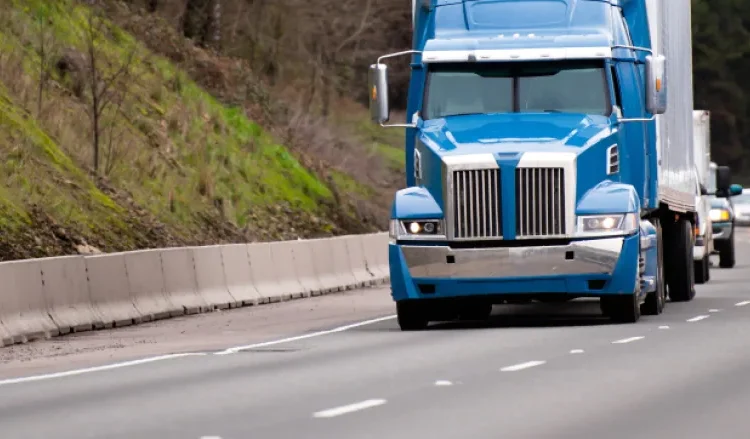120 workers with Prudential Transportation seeking better health, dental, and insurance coverage
B.C.’s already hobbled supply chain could encounter another setback this week if container truck drivers serving the Port of Vancouver follow through with a plan to strike on Friday.
Labour union Unifor says on Monday, it told Aheer Transportation and Prudential Transportation that about 170 drivers would walk off the job later this week if they weren’t offered better employment terms.
On Tuesday, Aheer Transportation, who employs 50 unionized drivers, signed a tentative agreement with Unifor. Prudential Transportation has yet to do the same, which means their 120 drivers could still walk off the job this week.
“We’re pleased to have reached an agreement with Aheer, and we’re hopeful this will turn the page and lead to a more productive bargaining relationship with the company,” Unifor Western Regional Director Gavin McGarrigle said in a press release.
The workers are requesting better health, dental, and insurance benefits for all drivers, along with increased payments for time spent waiting for their trucks to be loaded and unloaded.
Unifor originally estimated that a strike with both companies would affect about 170 trucks, or about 10 per cent of the vehicles servicing the Port of Vancouver, which has been in the spotlight since mid-November storms flooded many transport routes in B.C.
The extreme weather left several of the province’s key transit arteries underwater, cut railway lines and caused companies to increasingly turn to the skies and waterways for shipping goods.
The shift in transport has left the Port of Vancouver with a high number of cargo ships anchored and hampered from unloading.
Unifor believes a strike would threaten Canada’s overall port stability even further, but is necessary because it says business at both companies is booming, creating room to compensate workers accordingly.
“Prudential and Aheer’s largest competitor at Harbour Link can afford to treat Unifor members fairly and all of these drivers play a critical role in the supply chain of the Lower Mainland,” said McGarrigle.
Prudential Transportation did not immediately respond to a request for comment.
However, Shina Aheer, who runs Delta, B.C.-based Aheer Transportation, pushed back on the idea that his company should match employment terms offered by competitors.
“I like to accommodate and I don’t want any disruption to labour, but at the same time, I don’t want to be uncompetitive in the marketplace or take myself out of the market,” he said.
Aheer was hopeful the two sides would come to an agreement by the end of Tuesday, but if they don’t, he admitted there would be ramifications for B.C.’s shipping industry.
“Every bit does count,” he said.
“Every truck that goes to the Port of Vancouver relieves the pressure and the congestion of the supply chain.”
Companies that may end up affected by the dispute have few other options that aren’t already overwhelmed by the effects of storms.
Canadian National Railway Co. said on Monday that it had stopped some of its service along the southern B.C. freight corridor because rain was causing increased debris, washout and landslide activity.
CN diverted some rail traffic to the Port of Prince Rupert, but both northbound and eastbound traffic to and from Vancouver were still affected.
Meanwhile, Canadian Pacific Railway Ltd. was able to bring grain and fuel shipments to Vancouver last Wednesday for the first time in days.
Its rail corridor sustained heavy damage in some 30 locations between Vancouver and Kamloops, B.C. Getting such trips up and running again has been difficult because the company needs access to some CN tracks affected by the weather.


